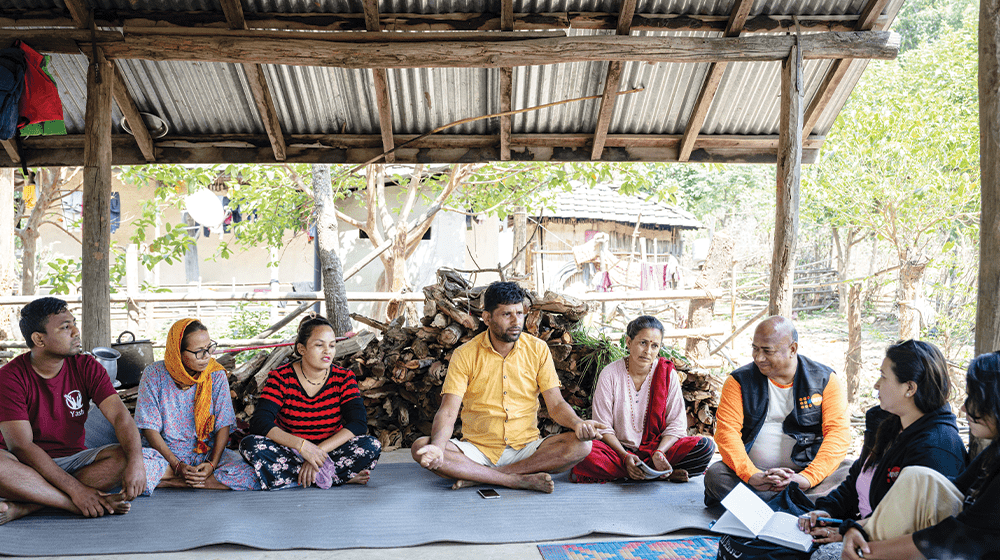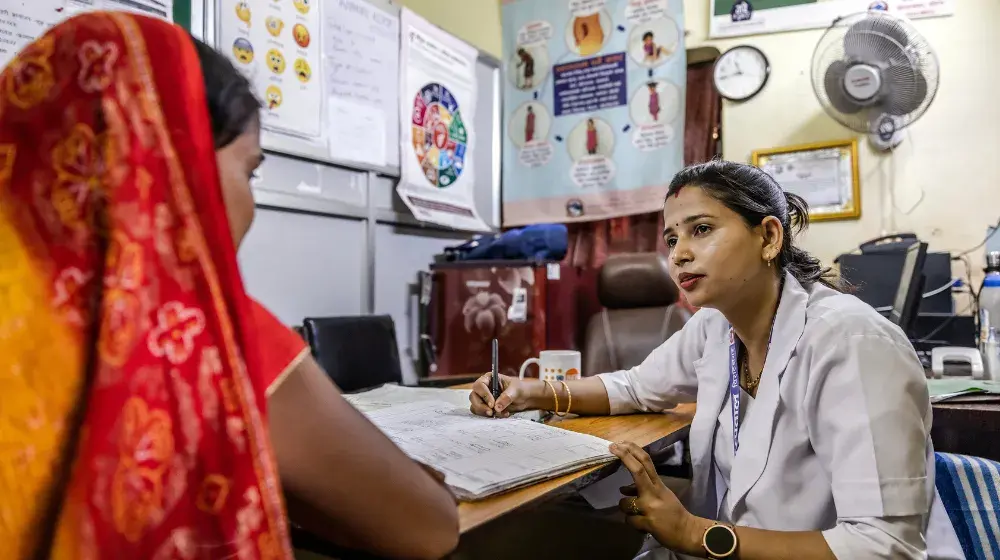When she was 13 years old, Nikita was playing in the courtyard outside of her parent’s house, as she did often once she had finished her daily chores. As any other young girl in Nepal’s rural countryside, she was expected to help her mother around the house and in the fields, and she looked forward to her free time in the afternoon.
On this particular day, however, two of her neighbours in the village enticed her with offers of fruit into one of their small and dimly lit houses. Once inside, the two men closed the front door behind her and, locking her inside, proceeded to rape the young teenager. Defenceless and unable to fight off the men, the rapes and attacks continued for weeks. The men continued to threaten Nikita with violence if she told anyone about the incidents, and she became increasingly withdrawn as the traumatic experience continued.
While sitting with her elder sister at home one day, however, Nikita started to describe these attacks, explaining how these men had tricked her into the house, raped her, and then threatened to harm her even more if she told anyone about the incidents. On hearing what had happened, her sister immediately spoke with their parents, and although initially reluctant, the elder sister insisted the family report the incidents to the authorities. As a first responder, the local community health volunteer, Tika Ale, was one of the first to be contacted. She recognized what is an all-too-common response of parents in rural Nepal to such incidents: a reluctance to report to the police and seek support services for the survivor. In these circumstances, all too often, parents feel powerless to confront the attackers and pursue justice and support out of fear of reprisals from the community or a perception of shame.
Tika Ale is used to dealing with these typical responses from communities, and she reacted immediately, with her training instincts automatically kicking in as a case manager. On arriving at the home, she discussed the case with the parents and Nikita and reassured them that although the incident was traumatic, support was available and they should report the case to the police without delay.
“People are reluctant because they feel that dealing with the police can be very time consuming and frustrating, and they are also not confident about putting their daughter through more trauma after what she has been through, thinking it would cause her distress,” explains Tika Ale.
She explains, “Reporting of rape and sexual violence in these small and close-knit communities is complicated by the close community bonds between neighbours.” Tika pauses, “This case, however, shows another side. One that shows communities that are engaged are able to understand much better the impact of violence, including rape. They are much more likely to provide a supportive environment where the survivor isn’t isolated from the community.”
After hearing rumours about the incident, Gita, a neighbour, explains, “I thought it was important that the community was involved. Gita and his wife Apsara had recently experienced how community engagement could help both prevent forms of gender-based violence and, when incidents occurred, provide support rather than isolate the survivors.
“We all heard about the incident because we are a small community. And we wanted to ensure our community supported the girl,” explains Gita. He continues, “We gathered with other members of our village who we had attended a series of group discussions with before. In these meetings, we jointly learned about violence in communities and families. We learned about the impact of violence, especially on women and girls, and we agreed that these incidents were very harmful to our communities.”
The first thing the group decided to do was reach out to the parents of Nikita to support Tika Ale and also to reassure the family of Nikita that the community was firmly behind them. Working with Tika, they encouraged the parents to report the case to the police and also continue seeking support for Nikita.
Throughout the ordeal, Ale was at the side of Nikita, and she accompanied her as the police recorded her statement at a specialized unit of the women’s and children's cell at the district police station. She also had a medical check-up, and to aid her recovery, she continues to be supported by specialized services.
The community’s engagement was vital to the work of Tika Ale. In supporting the family, the parents were able to feel confident that their daughter would feel secure in the village community. Their attendance at the couple discussions has helped the wider community understand sexual and physical gender-based violence and become more empowered to intervene in positive ways to respond to even the most serious incidents with empathy and care.
“We learned about violence and forms of violence, and sat down with other members of our village and told them about these things. Had it not been for these sessions we attended, we would have not been able to see this issue like we are able to now,” says Apasara Dahal.
Levels of gender-based violence in Nepal remain some of the highest in Asia and the Pacific region. According to national surveys in 2022, one in four women aged 15–49 have ever experienced physical or sexual violence in Nepal. With the support of people like Tika and the communities she serves, these forms of violence are in decline from a high of 37.5 percent in 2011. More than 72 percent of women who experienced violence, however, did not seek any support. This was not the case for Nikita who with support from Tika and her village community bravely pursued a case against the two men that raped her.
Community engagement is crucial to continuing this reduction in the levels of sexual and physical violence experienced by women and girls in Nepal. Nikita is back at home and recovering from her ordeal. She has also returned to school. The two men who raped her were tried in court and received significant custodial sentences for their crimes.
The small village community involved has also resumed their normal daily lives, and Nikita and her parents are grateful for the support their daughter has received. Ale Tika concludes, “Nothing can undo what has happened, but at least the parents and Nikita took the right step towards making things a little better. The family was also grateful to the wider community for helping and guiding them in the right direction.”
Changing perceptions of gender-based violence, empowering communities to target harm experienced by women and girls, and finding peaceful ways to resolve conflict in communities is a crucial part of the Gender-based Violence Prevention and Response Programme of UNFPA and our partners, the Royal Norwegian Embassy and the Swiss Agency for Development Cooperation.



